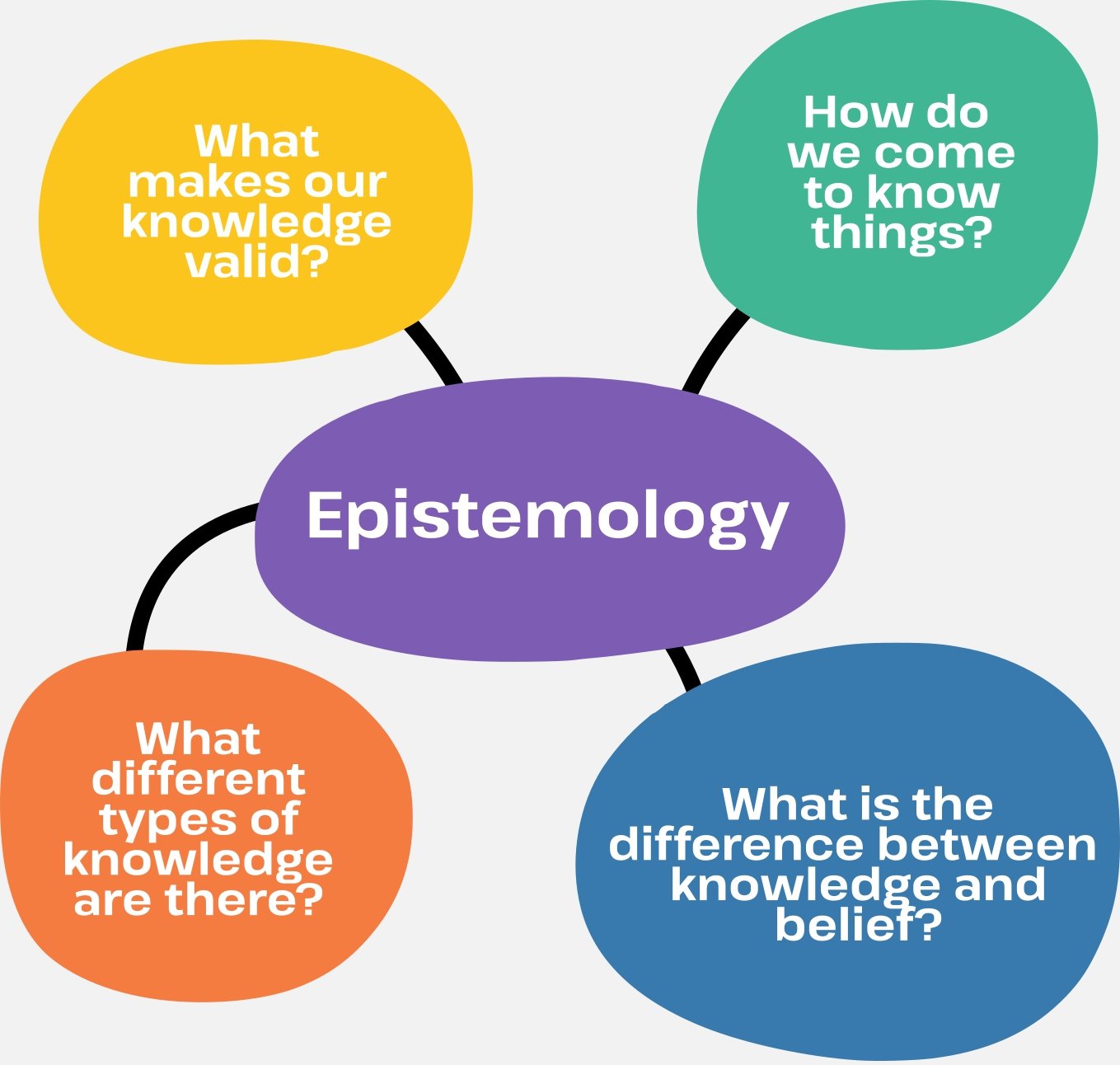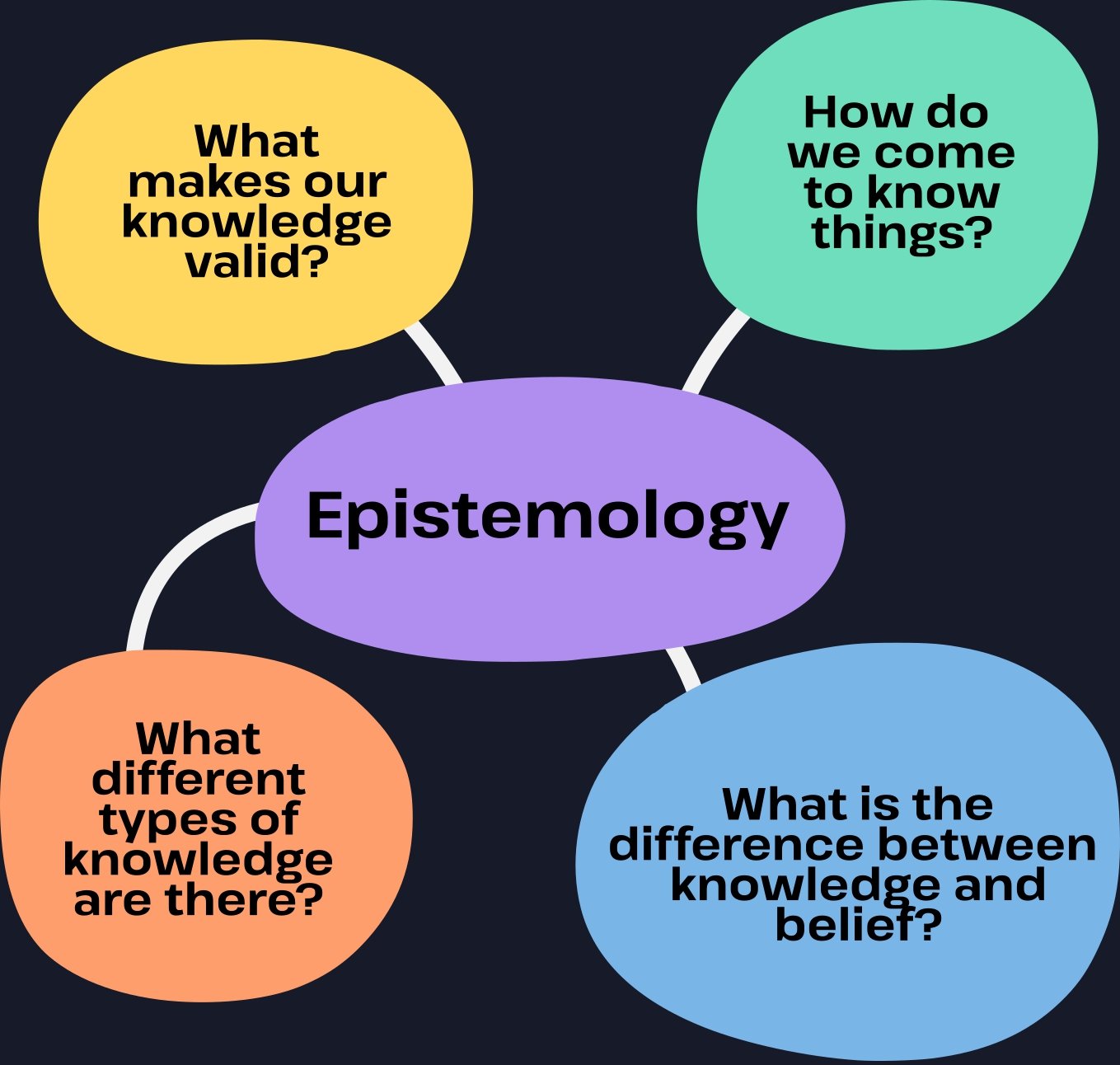Introduction
Epistemology is the branch of philosophy that deals with the theory of knowledge. As such, the validity of research, and our claims to the knowledge it produces, rest entirely on the validity of the epistemological arguments that underpin research practice.


Research practice happens within a specific epistemological framework, but there are many different frameworks we could work from. Each gives credibility to different kinds of research practice and the subsequent knowledge they produce. For example, empiricism holds that all knowledge derives from sense experience whilst rationalism claims some knowledge is possible without it. Feminist epistemology analyses how gender interacts with knowledge and decolonial epistemology critiques the influence of Western hegemony on knowledge.
Whilst philosophy is often considered a predominantly European and Middle-Eastern subject, there are in-fact rich, varied, and sometimes far older, philosophical traditions from around the world. These include African and Africana philosophy, traditional Indian philosophy, and Indigenous American philosophy. Attempting to summarising these here is beyond our scope and would do a disservice to the depth of these traditions. Instead, we encourage you to use the resources below and start to explore these yourself.
Alternative Epistemologies - Melz Owusu
In this video Melz Owusu, a scholar, activist, and founder of The Free Black University, discusses epistemology and the concept of alternative epistemologies.
You can continue by dipping into the Stanford Encyclopaedia of Philosophy’s entry on epistemology to familiarise yourself with a traditional notion of epistemology. Then, read Alternative Epistemologies by C. W. Mills, about the possible alternative epistemologies.
As researchers, we rarely consider the variety of epistemological options or engage critically with our own positions. If we are concerned with improving research, then epistemology is not something we can ignore.
Activity
Write down some of the epistemological assumptions and ideas that underpin your research area. If this is difficult, try talking to colleagues about this or reading more about the philosophical foundation of your research field.
Challenge yourself to write down some alternatives to the points you have just identified. What would they mean for your research?
Why do you think we tend to avoid explicitly considering epistemology in research? Discuss this with a colleague and consider why we might want to change this.
Case Studies
References and Further Resources
The History of Philosophy Without Any Gaps is a podcast series that presents a detailed historical account of philosophy. They have specific series devoted to Islamic, Indian, African, and Chinese philosophy. Whilst these don’t focus specifically on epistemology, they are a great way to start understanding the variety of intellectual frameworks that exist globally. This helps to contextualise Western epistemology which is usually dominant and perceived as the only option.
Mad Studies is an emerging “field of scholarship that brings together theory, activism and creativity, drawing on the lived experiences, thinking, history and politics of people who variously identify as mad, psychiatric survivors, mental health consumers/service users/patients, voice hearers, plural/multiple, neurodiverse, and/or disabled” (taken from the International Mad Studies Journal website). Part of the Mad Studies approach can be understood as epistemological, challenging traditional restrictions on who can create knowledge. Read Decolonising global mental health: The role of Mad Studies by Peter Beresford and Diana Rose to explore this in more detail.
Entries in the Stanford Encyclopaedia of Philosophy. Note: These articles are generally quite technical and aimed at academics with a background in philosophy. Nonetheless, they provide a useful resource for anyone interested in these ideas. For those who feel these may be beyond their technical understanding of philosophy, we would encourage you to read them anyway, adopting a light-touch or skim-read approach. This will give you an impression of the depth and variety of epistemic traditions, whilst also serving as a starting point for more thorough engagement (should you desire it)!
Feminist Epistemology and Philosophy of Science
Epistemology in Chinese Philosophy
Epistemology in Classical Indian Philosophy